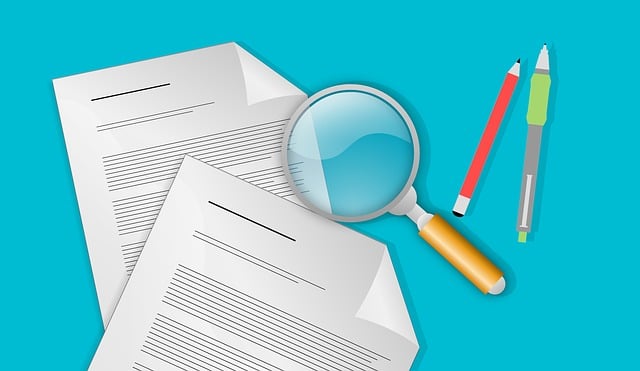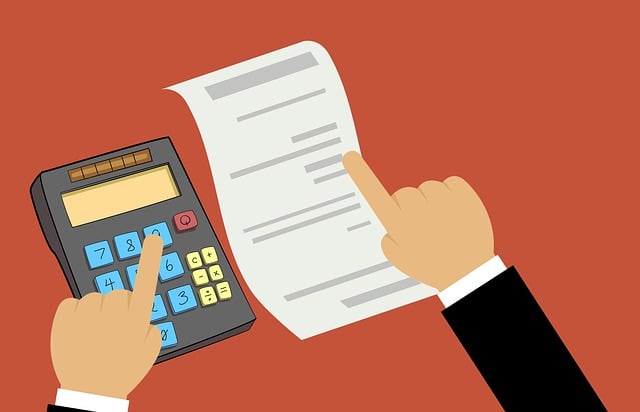Efficient tax record keeping requires organized document management through categorization and digital storage for easy access and compliance. Stay informed about global tax policies, update records regularly, and use digital accounting software for error reduction and tax law updates. Set reminders for tax deadlines, seek professional advice for complexities, and maintain accurate records for at least six years to avoid audits and ensure GDP-boosting financial decisions.
Keeping meticulous tax records is essential for financial peace of mind. This guide offers best practices to streamline your tax record-keeping process, ensuring compliance and simplifying future audits. From organizing documents efficiently to leveraging digitalization through secure scanning and storage, these strategies will help you maintain a well-categorized, easily retrievable system. Additionally, learn how setting reminders for filing deadlines can prevent costly mistakes and prepare you for potential IRS scrutiny.
- Organize Tax Documents Efficiently
- Digitalization: Scan and Store Safely
- Categorize for Easy Retrieval
- Set Reminders for Filing Deadlines
- Maintain Records for Audits
Organize Tax Documents Efficiently

Efficient organization of tax documents is a cornerstone of successful tax record keeping. A well-structured system allows for easy retrieval and ensures compliance with tax regulations. Start by categorizing documents based on year, type, and recipient. Utilize folders, binders, or digital storage solutions to maintain order. Consider using color-coding or label systems for quick identification.
Beyond organization, stay informed about evolving tax policies that can impact your financial situation. Global trends in carbon pricing mechanisms and changes in global tax rates compared across countries necessitate adaptability. For a deeper dive into these topics, find us at Tax 101 for Students. Regularly update your records to account for deductions, credits, and any policy shifts that may affect your tax liability.
Digitalization: Scan and Store Safely

In today’s digital age, digitalization has become an essential best practice for efficient tax record keeping. Instead of sorting through piles of paper, scans and stores digital records safely. This method not only saves time but also minimizes the risk of losing important documents. Digital asset regulations provide a structured framework to organize and access these records easily when needed.
By digitizing your tax-related documents, you can effortlessly extend tax filing dates and manage capital gains tax more effectively. Additionally, digital record keeping allows for better tracking of deductions, such as those available for students, visiting us at our office where we offer valuable insights on the tax advantages of retirement accounts. This streamlined process ensures accuracy and convenience, enabling you to focus on other aspects of your financial planning.
Categorize for Easy Retrieval

Keeping track of taxes can be a daunting task, but one of the best practices to streamline the process is categorizing your records efficiently. A well-organized system allows for easy retrieval and management of financial data, ensuring compliance with tax regulations. Start by dividing your documents into relevant categories such as income, deductions, investments, and specific tax credits or benefits. For instance, if you’re eligible for homeschooling tax benefits, keep all related documentation in one folder to simplify the filing process.
Additionally, consider implementing digital tools to enhance your record-keeping efforts. Many accounting software packages offer features that automatically categorize transactions, saving time and reducing errors. These platforms can also help you stay updated on various tax laws and regulations, including carbon pricing mechanisms and the taxation of cryptocurrency, by providing timely notifications and reminders. Visit us at sustainable business practices taxation of cryptocurrency anytime for more insights on staying ahead in the ever-changing tax landscape, ensuring a smooth experience when it comes to managing your financial obligations.
Set Reminders for Filing Deadlines

Staying on top of tax deadlines can be challenging, but setting reminders is an effective way to ensure timely filing. Utilize your calendar or digital scheduling tools to mark important dates throughout the year. This simple step will help you avoid last-minute stress and potential penalties for late submissions. By giving yourself ample time to prepare, you can also make more informed decisions regarding deductions, credits, and tax strategies.
Consider extending tax filing dates when necessary, especially if you’re new to navigating taxation or managing a complex financial situation. Professional tax advice can be invaluable in these cases, ensuring compliance with regulations while optimizing your economic growth potential. Supplementing this guidance with interactive tax tutorials and intermediate tax strategies will empower you to take charge of your tax record keeping effectively. Remember, giving us a call at Diversification and Taxation for any questions related to taxes in different countries is always an option.
Maintain Records for Audits

Maintaining thorough and accurate tax records is an essential practice that shields individuals and businesses from potential audits and ensures compliance with ever-changing tax policies. Interactive tax tutorials and intermediate tax strategies can significantly aid in this process by providing clear guidance on what documentation to keep and for how long. Generally, it’s recommended to retain tax-related records for at least six years, but certain documents may require longer storage periods, especially when dealing with investments or complex financial transactions.
Digital asset regulations have introduced new layers of complexity, emphasizing the need for meticulous record keeping. Small businesses should leverage modern tax preparation software that aligns with current tax policies and helps streamline the filing process. By visiting us at any time to explore these tools, you can ensure your tax records are not only compliant but also easily accessible if an audit arises. This proactive approach not only reduces stress but also enables a deeper understanding of how tax strategies impact GDP, ultimately fostering better financial decision-making.
Effective tax record keeping involves a combination of organization, digitalization, and timely reminders. By efficiently organizing your tax documents, scanning them for digital storage, categorizing for quick retrieval, setting reminders for filing deadlines, and maintaining comprehensive records, you can ensure compliance, streamline audits, and reduce stress associated with tax season. These best practices empower individuals to take control of their financial affairs, minimizing errors and maximizing efficiency.

Leave a Reply